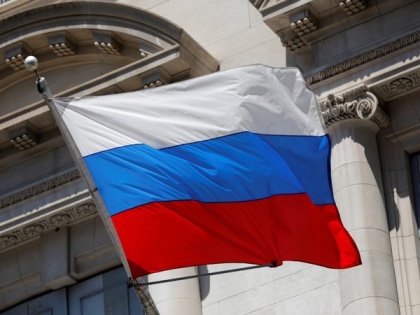Big power competition starts in Kazakhstan after the ascendancy of Taliban 2.0
By ANI | Updated: January 17, 2022 22:45 IST2022-01-17T22:38:34+5:302022-01-17T22:45:07+5:30
With the return of Taliban to power in Afghanistan, the possibility of big power competition is engulfing the whole of Eurasia, as the ongoing developments in Kazakhstan show, according to a think-tank report.

Big power competition starts in Kazakhstan after the ascendancy of Taliban 2.0
With the return of Taliban to power in Afghanistan, the possibility of big power competition is engulfing the whole of Eurasia, as the ongoing developments in Kazakhstan show, according to a think-tank report.
While the Russian President, Vladimir Putin, rushed the Russian-led military force under the Collective Security Treaty Organization (CSTO) to enter Kazakhstan in order to restore order, the U.S.-led Western world inevitably sees this move as a Russian 'invasion' meant to "subvert the democratic order" in Central Asia, according to Russian International Affairs Council.
However, this narrative largely underestimates the other players involved. Significantly, sharing a long common border with Kazakhstan, China is closely watching the situation. The Shanghai Cooperation Council (SCO), an intergovernmental organization that promotes cooperation and coordination against terrorism and other external threats, has also been silent.
On the other hand, Turkey, keen to retain its cultural ties and economic influence in the largely Turkic Central Asia, has become the third player in what Ankara considers its backyard.
Some observers claim that the Turkish President, Recep Erdogan, appears to be tacitly promoting militant groups, thus boosting the role of Sunni extremists together with the contribution of Pakistan's Prime Minister, Imran Khan, as per the analysis of Russian International Affairs Council.
On the other hand, Central Asian Republics (CARs) did not recognize the first Taliban government (1996-2001) and eventually supported the US led assault on Afghanistan, an operation in which the Northern Alliance, composed mainly of ethnic migrants from Central Asia, played a key role.
However, this time, with Taliban 2.0 in power, the Central Asian countries are not supporting any force hostile to the Taliban, like Ahmed Masoud of the Afghan Resistance.
Instead, they have adopted a wait-and-watch policy to see if the Taliban will keep their promise of not nurturing and exporting terrorist groups to Central Asia. The Kazakhstan developments appear to belie these hopes and may have forced the largest CAR to secure help from Moscow.
A side effect of this multi-vectorial foreign policy is that it also enhanced the role of Islam among the hitherto secular Kazakhs and the resultant Islamist radicalism in the society, with many groups trained in Afghanistan-Pakistan through the 1980s. These groups used the Turkish umbrella for spreading radicalism, while Turkey focused on the construction of mosques, various political, educational institutions in Kazakhstan, according to Russian International Affairs Council.
The past role of Islamist militant groups, based in Turkey and Afghanistan-Pakistan region, that bears deep relevance to the current situation in fomenting trouble in Central Asia is summed up by Richard Weitz, Senior Fellow and Director of the Center for Political-Military Analysis at the Washington-based Hudson Institute.
Commenting on the Central Asia's Taliban surprise back in September, Dr. Weitz noted that "during the previous Taliban-ruled government in Afghanistan, the Islamic Movement of Uzbekistan (IMU) used Afghan territory for training and transnational terrorist operations.
Past records show that these groups have the tendency to merge with the local populace and remain entrenched. And having done that, they exercise influence, even control of the ground reality in the region. With the exit of the US-led forces in August 2021, the past seems to be repeating itself. As for Central Asia, we might see more Kazakhstan-like situations in the near future, according to Russian International Affairs Council.
( With inputs from ANI )
Disclaimer: This post has been auto-published from an agency feed without any modifications to the text and has not been reviewed by an editor
Open in app